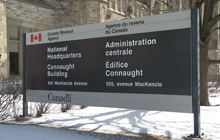Breaking the VDP when it doesn’t need fixing

Tax lawyer David Rotfleisch says proposed changes by the Canada Revenue Agency to the Voluntary Disclosures Program are bad ones
The changes proposed by the Canada Revenue Agency to the Voluntary Disclosures Program (VDP) are bad.
We at Rotfleisch & Samulovitch P.C. are preparing detailed submissions to the CRA in opposition to its radical proposals. I urge all accountants to do the same.
If there is enough negative feedback from the professionals most familiar with the VDP, perhaps the CRA will backtrack on some (dare we hope all?) of the proposals.
The VDP is arguably one of the most beneficial and cost-effective arrangements, from both the taxpayer and the fiscal point of view, administered by the CRA. The announced amendments, if enacted, will eviscerate the program.
As we know, the VDP allows Canadians, individuals, corporations or trusts who are offside in their tax affairs to come back into the tax system without fear of tax evasion prosecution or civil tax penalties. It is very successful.
Our firm files several voluntary disclosure applications each week and has done more than a thousand submissions over the years. We are far from the only professionals active in this area.
The latest VDP statistics reported by CRA show that, for 2014-2015, the total income reported from all voluntary disclosures was over $1.3 billion. $780 million of that amount relates to offshore income.
Furthermore, the CRA reports that there were 19,134 voluntary disclosures received in fiscal year 2014‐2015.
Importantly, the enforcement costs of the VDP are minimal to the CRA and therefore to Canadian taxpayers. Scarce CRA tax audit resources were not needed to bring in almost $1.5 billion in income that was otherwise lost to the system.
Clearly, the VDP works — and works well. So why does CRA want to change the VDP?
A high-level review of the changes suggests that the focus of the proposals is to disallow most voluntary disclosure protection in cases of purported taxpayer culpability and limit full protection to taxpayer mistakes.
But does this make sense in light of the clear success of the program, from both a CRA and taxpayer point of view? The amendments seem to ignore this success and are designed to reduce or eliminate the availability of the VDP in many circumstances.
With the proposed changes to the VDP, it seems the CRA wants to send a stronger message about tax evasion to Canadians. It seems they want to make examples of tax cheats — and then rake in millions in back taxes owing, plus interest and penalties. But in a lot of these cases there is no mens rea involved.
At the same time, using a stick instead of a carrot will come with a higher enforcement price tag to Canadian taxpayers and it will not enjoy the same success.
And, at the end of the day, will this strategy compel high net worth Canadians to declare years of unfiled taxes?
Based on more than 30 years of dealing with taxpayers with unfiled returns or undeclared income, it is clear to me that those taxpayers who will only qualify for limited relief will take their chances on being caught.
Some do now, even with the wide availability of protection.
That’s human psychology. It’s called “catch me if you can.”
David J Rotfleisch, CPA, CA, JD is the founding tax lawyer of Rotfleisch & Samulovitch P.C., a Toronto-based boutique tax law firm. With over 30 years of experience as both a lawyer and chartered professional accountant, he has helped start-up businesses, resident and non-resident business owners and corporations with their tax planning, with will and estate planning, voluntary disclosures and tax dispute resolution including tax litigation. Visit www.Taxpage.com and david@taxpage.com.









(0) Comments